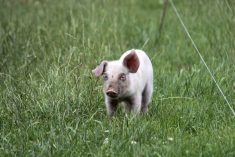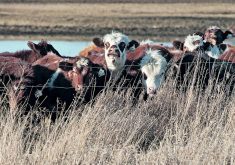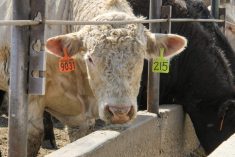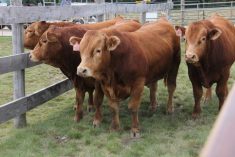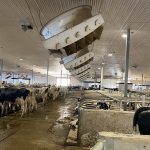The probe into Alberta’s first-ever outbreak of porcine epidemic diarrhea hasn’t yet shown any paths by which the PED virus might have got to the farm — nor any new cases anywhere else in the province.
The provincial government on Jan. 7 confirmed the first case of PED to appear in hogs in Alberta, at a 400-head farrow-to-finish operation at an unnamed location.
The PED virus (PEDv) is a coronavirus which, once introduced in a herd, causes vomiting, watery diarrhea and dehydration in infected animals. Mortality rates run up to 100 per cent in infected nursing-age piglets but are much lower in growing hogs, which generally present with milder diarrhea.
Read Also
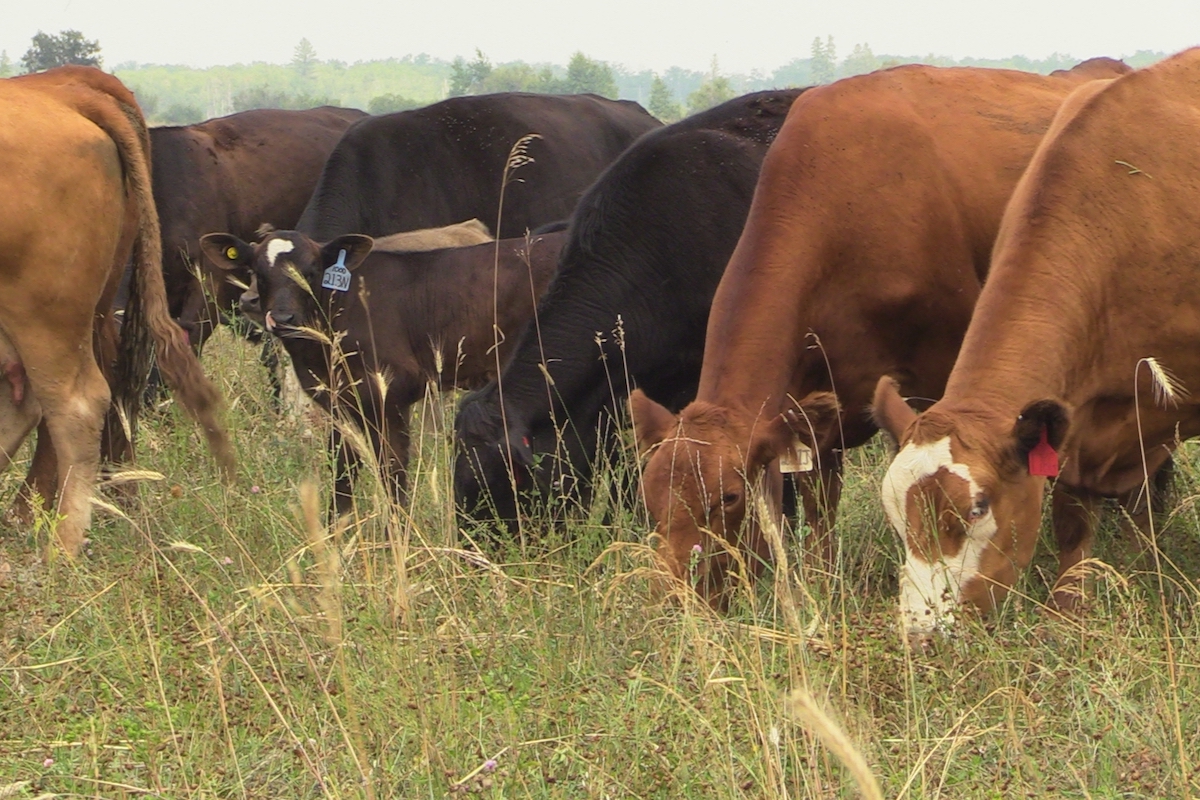
Beef industry weighs in on AAFC research cuts
The Canadian Cattle Association and Beef Cattle Research Council said cuts to federal research centres and programs will have long-term debilitating consequences for the beef industry.
“Enhanced biosecurity measures” are now in place on the entire affected premises “to reduce the risk of the virus leaving the site,” the provincial agriculture and forestry ministry said in a statement Tuesday.
No pigs from the affected farm have left the property since the diagnosis, nor have any been marketed to slaughter or assembly sites anywhere in Alberta, and there are “no plans to do so,” the province said.
How the virus might have reached the farm also remains a mystery, the province said. “All pig traffic in and out of the site has been traced and no transport links have been identified as potential sources.”
Furthermore, the province said, environmental surveillance testing from Alberta’s “high-traffic pig sites” is all still negative for PED.
“We’ve been investigating all of the well known sources of infection that have occurred in previous cases, such as transportation and feed and visitors, but to date, all of the transportation links to slaughter, assembly yards and truck washes, all our sampling has come back negative,” Dr. Julia Keenliside, a provincial veterinary epidemiologist in Edmonton, said Wednesday on the Prairie hog industry program Farmscape.
“We’ve looked at any possible contact with Manitoba or the U.S. and we have not found anything there.”
Also, she said, the province’s environmental sampling at other sites has turned up negative to date “and we’ve done tracebacks to all of these sites and we’ve not come up with any obvious links to any positive cases.”
Also, “no other cases of PED have been identified” in the province in the week since the lone outbreak was confirmed, the province said in its statement. So far, Keenliside said on Farmscape, “we believe that no other operations have been exposed.”
The lone hog operation now dealing with PED “reacted very quickly and has worked closely with their farm veterinarian,” she said. “They implemented enhanced biosecurity around the barn fairly quickly as well as traffic control and traffic rerouting on and off of the premises.”
Next up, she said, is the development of a cleanup plan for the property. That includes weighing options on where to market the farm’s animals, to limit risk of spreading the virus.
No pigs will be moved from the farm until a veterinarian’s certificate can be provided, Alberta Pork said in a separate statement Tuesday.
It’s too soon to say how long the cleanup will take, Keenliside said, but added that the experience at affected properties in Ontario and Manitoba has shown it can take several weeks or more.
Meanwhile, Alberta Pork said Tuesday, “all producers are reminded to be diligent with their biosecurity protocols during this critical time.”
Any hog producer who suspects his or her pigs may be infected is asked to contact their farm’s veterinarian “as soon as possible,” the province said Tuesday.
Alberta Pork reiterated Tuesday that while the PED virus affects pigs, it poses no risk to human health, the incident “has not caused any food safety concerns” and pork products “remain safe for consumption.”
Alberta had guarded its PED-free status since the disease was confirmed in the U.S. in mid-2013.
Ontario, where PED made its first Canadian appearance in January 2014, has since seen confirmed outbreaks at 117 hog farms, most recently on Dec. 20, 2018 at a farrow-to-weaning operation in Perth County.
PEDv has also appeared in 107 on-farm outbreaks in Manitoba, nearly all in the province’s southeast, most recently at a finisher barn on Dec. 28, 2018.
Quebec has reported 16 outbreaks since 2014, most recently in the Centre-du-Quebec region in April 2015 but mainly in the Monteregie. Prince Edward Island reported one outbreak in 2015. Saskatchewan has turned up environmental samples of PEDv, but no cases in hogs to date. — Glacier FarmMedia Network



